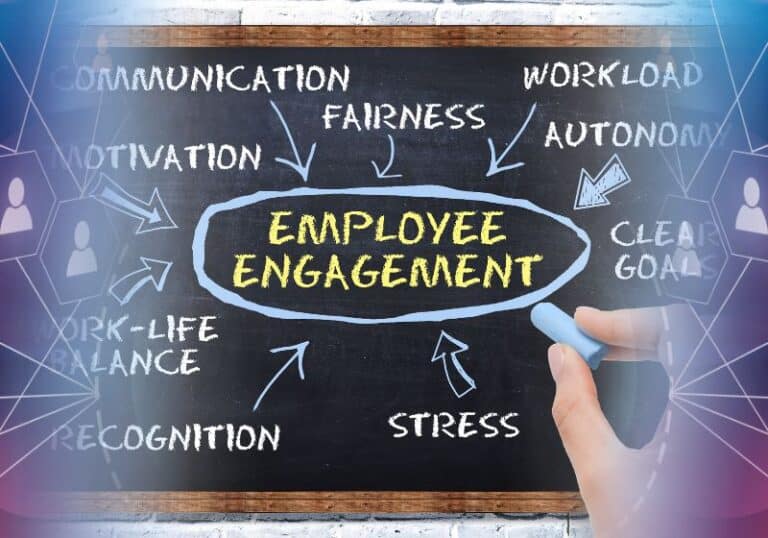My Employee is Working Multiple Jobs, what can I do?

The cost of living crisis has left many people struggling financially, leading to an increase in the number of employees working multiple jobs or roles. Recent research shows that one in six employees claimed they were working two jobs to help pay their bills, while one in three said they were considering a second job if costs continued to rise. While working two jobs can help employees to ease the financial burden, it also poses a range of challenges for both employees and employers alike.
This article will explore these challenges in order to help organisations better manage and support their staff working multiple jobs.
What Does the Law Say?
It is not unlawful for an employee to work two jobs. In fact, many people in the UK have multiple jobs or work as freelancers or contractors in addition to their full-time employment.
However, there may be some restrictions on employees working multiple jobs, particularly if it affects their ability to carry out their duties for their primary employer. For example, an employee may have a clause in their contract that restricts them from taking on additional employment without the employer’s consent.
Employers also have a duty of care to ensure that their employees are not working excessive hours or putting themselves at risk by working multiple jobs.
Working Time Regulations
The Working Time Regulations apply to all workers in the UK, regardless of whether they work one job or multiple jobs. However, workers with multiple jobs may face some additional challenges in terms of managing their working hours and ensuring that they are not working excessive hours or putting themselves at risk.
It is important for those working multiple jobs to be aware of their rights under the Working Time Regulations and to ensure that they are not working more than the maximum number of hours allowed. This may require careful planning and coordination between their different employers to ensure that they are not working too many hours in total.
Workers with multiple jobs may also face additional challenges in terms of taking breaks and rest periods, as their working schedules may be more complex. It is important for these workers to ensure that they are taking adequate rest breaks and that they are not working more than the maximum number of hours allowed for night work.
Overall, the Working Time Regulations apply equally to workers with one job or multiple jobs, and employers have a duty to ensure that their workers are not working excessive hours or putting themselves at risk. Workers with multiple jobs should be aware of their rights under the regulations and take steps to ensure that they are working within the limits set out in the law.
What Does the Contract Say?
The contract of employment should clearly state the terms and conditions of the employment relationship between the employer and the employee. If the employee intends to work multiple jobs, the contract of employment should address this issue and set out any restrictions or obligations that may apply.
The contract of employment should specify the maximum number of hours that the employee is expected to work per week, including any restrictions on working additional jobs. If the employee is subject to the Working Time Regulations, the contract should also make it clear that the employee is required to comply with these regulations and that they should not work more than the maximum number of hours allowed.
The contract should also address any potential conflicts of interest that may arise as a result of the employee working multiple jobs. For example, if the employee is working in a similar role for another employer, there may be a conflict of interest that could affect the employee’s ability to carry out their duties for their primary employer. The contract should set out any restrictions or obligations that may apply in this situation.
Finally, the contract should make it clear that the employee is responsible for managing their own workload and ensuring that they are not working excessive hours or putting themselves at risk. The employer may also provide guidance or support to help the employee manage their workload effectively.
Overall, the contract of employment should be clear and specific about the terms and conditions of the employment relationship, including any restrictions or obligations that may apply if the employee intends to work multiple jobs. This can help to avoid any misunderstandings or conflicts that may arise in the future.
Employee Wellbeing and Health & Safety
Employers have a duty of care to ensure the health and safety of their employees in the workplace, regardless of whether the employee is working one job or multiple jobs. When an employee works multiple jobs, the employer should take steps to ensure that the employee is not working excessive hours or putting themselves at risk.
Ultimately employers need to be sensitive and understanding of people who are taking on more than one job. This is a key issue in today’s workforce, and it is essential that employers have an informed view of how best to manage employees working multiple jobs.
Our Top Tips for Employers
Managing employees who have multiple jobs can present some challenges for employers. Here are some top tips to help you manage this situation:
Be clear about expectations
Make sure that your employees understand your expectations regarding their availability and workload. Clearly communicate how much time you expect them to dedicate to their work with your organisation and what is expected of them in terms of productivity.
Flexibility
Recognise that employees with multiple jobs may have competing demands on their time. Be open to accommodating their schedules as long as it doesn’t interfere with their work for your organisation.
Communication
Encourage open communication with your employees to help identify any conflicts that may arise. Be proactive in addressing these conflicts before they become problems.
Prioritise Tasks
Help your employees to prioritise tasks and manage their time effectively. This will help them to meet their commitments to your organisation and their other employers.
Support
Provide resources and support to help your employees manage their workload. This could include training, tools, or technology to help them be more efficient.
Recognise Achievements
Celebrate the successes of your employees with multiple jobs. Show appreciation for their hard work and recognise the contributions they make to your organisation.
Be Respectful
Remember that your employees with multiple jobs are likely doing their best to manage multiple responsibilities. Be respectful of their efforts and show understanding if they need to take time off or adjust their schedules.
By following these tips, you can help manage the challenges of staff taking on multiple jobs, while maintaining a productive and positive work environment.
It is important that employers understand these potential risks, and implement policies and procedures to support their staff. By doing so, employers can better manage and support their staff taking on multiple roles, enabling them to make the most of this arrangement and maintain a healthy work-life balance.
If you have any concerns regarding your employees having second jobs, please contact the team at HR:4UK on 01455 444222 or via our contact form.
Angela Clay
A qualified employment law solicitor and our managing director, Angela has unparalleled legal expertise and decades of experience and knowledge to draw from. She’s a passionate speaker and writer that loves to keep employers updated with upcoming changes to legislation, and is a regular guest speaker on BBC Leicester Radio.




